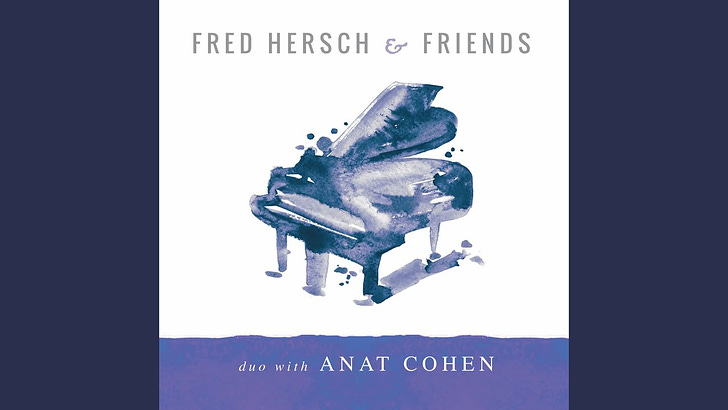Here’s something to settle into this Sunday.
It made me think of the rains and of summer nights, both, all plural, all many.
Admittedly (and embarrassingly), my introduction to Jazz was Whiplash. So that already puts the contents of this letter in a dubious position. And if I add that my introduction to Fred Hersch was this weekend that you are reading this in, then frankly, to continue any further is untenable.
But let’s persist.
This is Fred Hersch:
An AIDS survivor. A coma survivor. A theatre producer of dreams. 30 Albums. 10 Grammys. A Jazz composer who peers say achieves perfection on his Piano. A soul who has come to terms with all parts of his life. (4)
But that’s just the way I see it. Sure there’s more. The little that I read of Fred Hersch turned out to be a lot, not many, but what’s there was deep.

(Source)
And sinking it to that depth here’s a small set of his notes that I play for you -
In an excerpt from his memoir that I heard him read (1) I saw a young creative struggling with the same things any other creative struggles with - that of belonging.
In it we picture him sitting after a gig between two trailers parked in an L shape. The elbow of the L was were they hung out and where he found himself sitting. On one side we have the Jazz players huddling with sandwiches and talking about their women, cars and Cincinnati Reds; to his right on the other side he has the gay boys and girls - the singers, chatting and lip syncing songs and calling each other Mary. He didn’t belong to either side despite being a gay jazz musician and that internal conflict took him many years to resolve.
It’s a well composed chapter, vivid, artistic, poetic. Here’s a child prodigy, very sure of what he wanted to do in life from early on, in a welcoming and open environment. Struggling with belonging, struggling with the stereotype.
But life isn’t so cruel. Look at the early influences on a young Fred. Life didn’t just gift him his genius, but literally shaped it. How many musicians did he surround himself with as a young artist. (2)
(I wonder what the literary equivalent of this is? Is it just reading? Do people of letters instead of notes only learn through letters? Maybe it is also hanging out where what they write do. Not as a reader, but as a writer.)
Here’s another thing that stood out for me in that interview which could very well suffice as his memoir. It isn’t an answer to a question, but in his flow he described his process to become a success. The key to creating -
figuring it out by fucking up, getting back up on your feet, fucking up again, getting back up on your feet, hanging out, learning from people around you, listening to tons of records, learning the history of your instrument, learning the repertoire, the standard repertoire, the jazz repertoire, composing your own music,
It in some way explains the title of his memoir I suppose.
And that’s pretty much what I have for you. The rest are all spread in what others have managed to bring out from him.
And so what if it took a global pandemic (3) to make me find him. I am glad I did. Fred Hersch is no survivor. He is a triumph. And I’ll leave you with my favourite line I gathered from him. It is for young musicians but I think it is true for everyone:
You also need to be a nice guy to be around, be professional and prepared, and be versatile.
I heard it over at NPR where they have an audio essay profiling him called - Fred Hersch and the Art of Interospection
That interview in itself could deserve a newsletter. It is exceptionally long, and exceptionally devoted to music. So it might not be for everyone. But it’s filled with gems. There’s an instance in the interview where they talk about how musicians should be willing to fail, and not just stick to notes, they talk about the number of mistakes Miles’ made in his records - they weren’t charming mistakes, but they were where he won if you think about it. That’s an insight I took from reading that and there were plenty more. Here’s the link to it if you missed it above.
Fred Hersch streams a performance on his Facebook page because of the times we live in. It was his way of both making sense and bringing calm in a pandemic stricken world. The link to which somehow landed with me and now we have this little episode you’ve read
In another interview, more recent, there’s a part where he explain why his memoir is called Good Things Happen Slowly. You can read it here.


